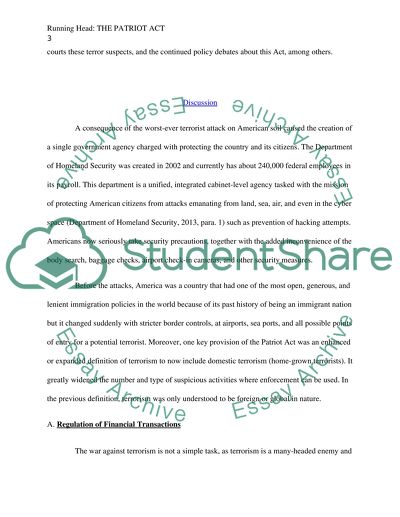Cite this document
(“The Patriot Act Essay Example | Topics and Well Written Essays - 2000 words - 1”, n.d.)
The Patriot Act Essay Example | Topics and Well Written Essays - 2000 words - 1. Retrieved from https://studentshare.org/history/1620410-the-patriot-act
The Patriot Act Essay Example | Topics and Well Written Essays - 2000 words - 1. Retrieved from https://studentshare.org/history/1620410-the-patriot-act
(The Patriot Act Essay Example | Topics and Well Written Essays - 2000 Words - 1)
The Patriot Act Essay Example | Topics and Well Written Essays - 2000 Words - 1. https://studentshare.org/history/1620410-the-patriot-act.
The Patriot Act Essay Example | Topics and Well Written Essays - 2000 Words - 1. https://studentshare.org/history/1620410-the-patriot-act.
“The Patriot Act Essay Example | Topics and Well Written Essays - 2000 Words - 1”, n.d. https://studentshare.org/history/1620410-the-patriot-act.


